Northern Ireland contains just 1.8m people – roughly a fifth of London's population. Indeed, the density of humans is so low that it can often feel as though you have the countryside to yourself; each path your own, save the scuttle of a red squirrel or the chirrup of a songbird.
With hundreds of miles of dramatic coastline, wild hills and mountains, magical forests and numerous beautiful rivers and lakes, Northern Ireland is a walker's paradise.
To help you make the most of these landscapes, we've put together a selection of the best walks in Northern Ireland. Each route includes the distance, duration and difficulty, as well as walking directions and maps.
Take to the trail and discover the mountains, loughs, forests and coastlines of this magical country with some of our favourite walks.
Looking for more walking inspiration? Check out our pick of the best walks in England, the best walks in Scotland and the best walks in Wales.
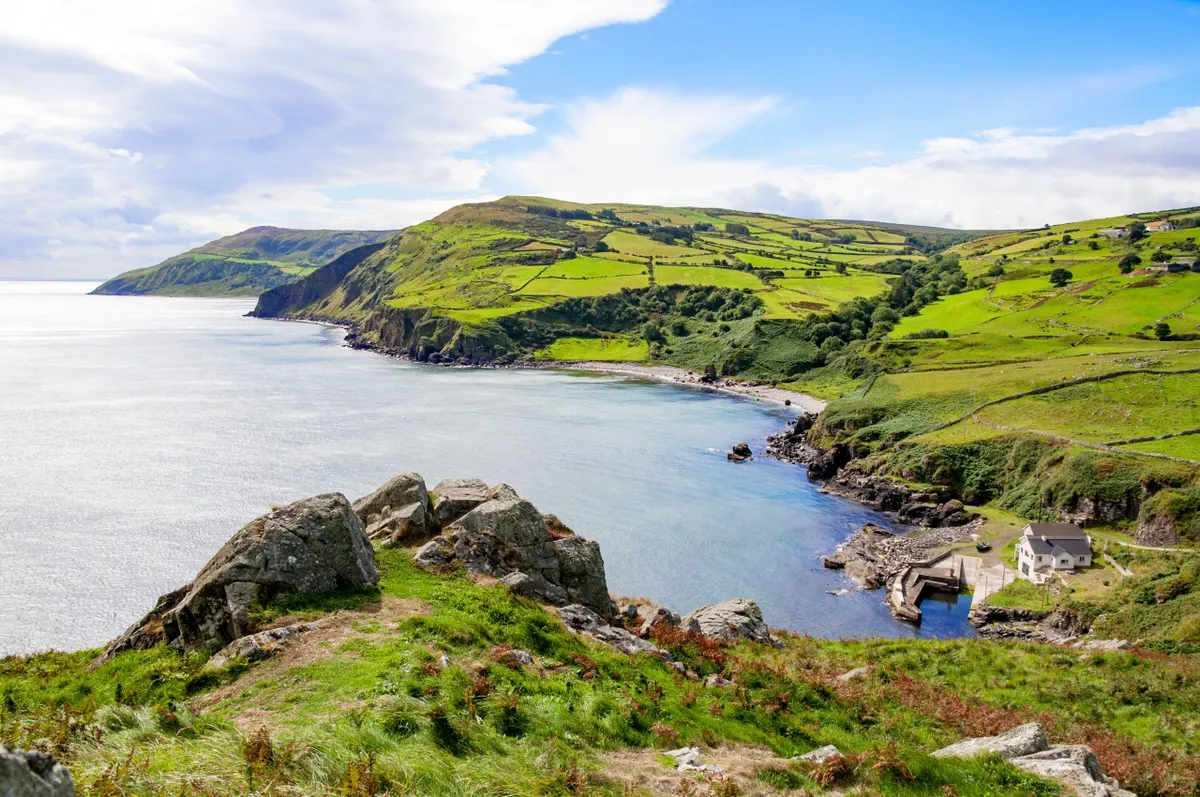
Best walks in Northern Ireland
Slieve Donard, County Down
5.8 miles/9.3km | 4.5 hours | challenging

This out-and-back and back route climbs through woodland, beside streams and over stone slabs to the summit of Slieve Donard in the Mourne Mountains, Northern Ireland's highest point.
Much of its charm stems from its location; the Irish Sea hugs the mountain’s eastern base, while the charismatic peaks of the Mourne Mountains lie clustered to the west. No wonder it’s a magnet for hikers, and the classic hill walk in the province.
This route describes the most popular and straightforward approach to the summit: an out-and-back ascent via the Glen River Track.
Ballintoy, Carrick-a-Rede and Portbraddan, County Antrim
5 miles/8km | 3–3.5 hours | moderate (return)
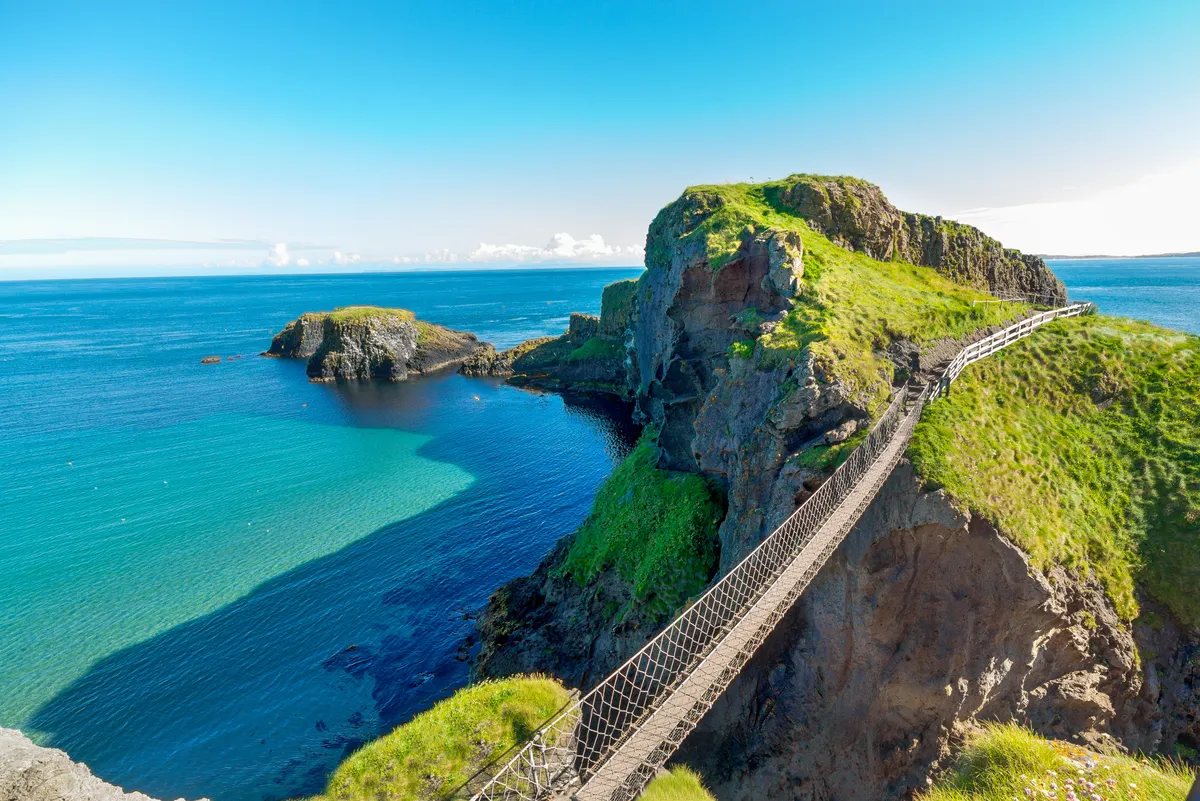
Set in the midst of Antrim’s famous Causeway Coast, Ballintoy is a small village whose name translates as ‘town of the north’. The title is apt; Scotland’s Mull of Kintyre is visible on the Atlantic horizon.
The village jewel is its harbour, a time-honoured haven for fishing boats, constructed from limestone blocks and protected by a jumble of offshore stacks. So evocative is the location, it was chosen as the setting for the Iron Islands in HBO’s popular TV series Game of Thrones.
Yet long before its small-screen fame, this coastline was celebrated by walkers and naturalists. The signed Causeway Coast Way stretches off in both directions, providing 33 miles of superlative coastal hiking.
Less than two miles east along the path lies the unique and thrilling Carrick-a-Rede Rope Bridge. The route west towards Portbraddan is even better, and an out-and-back hike in this direction is not to be missed.
Slieve Binnian, County Down
6 miles/ 9.7km | 4.5 hour | challenging
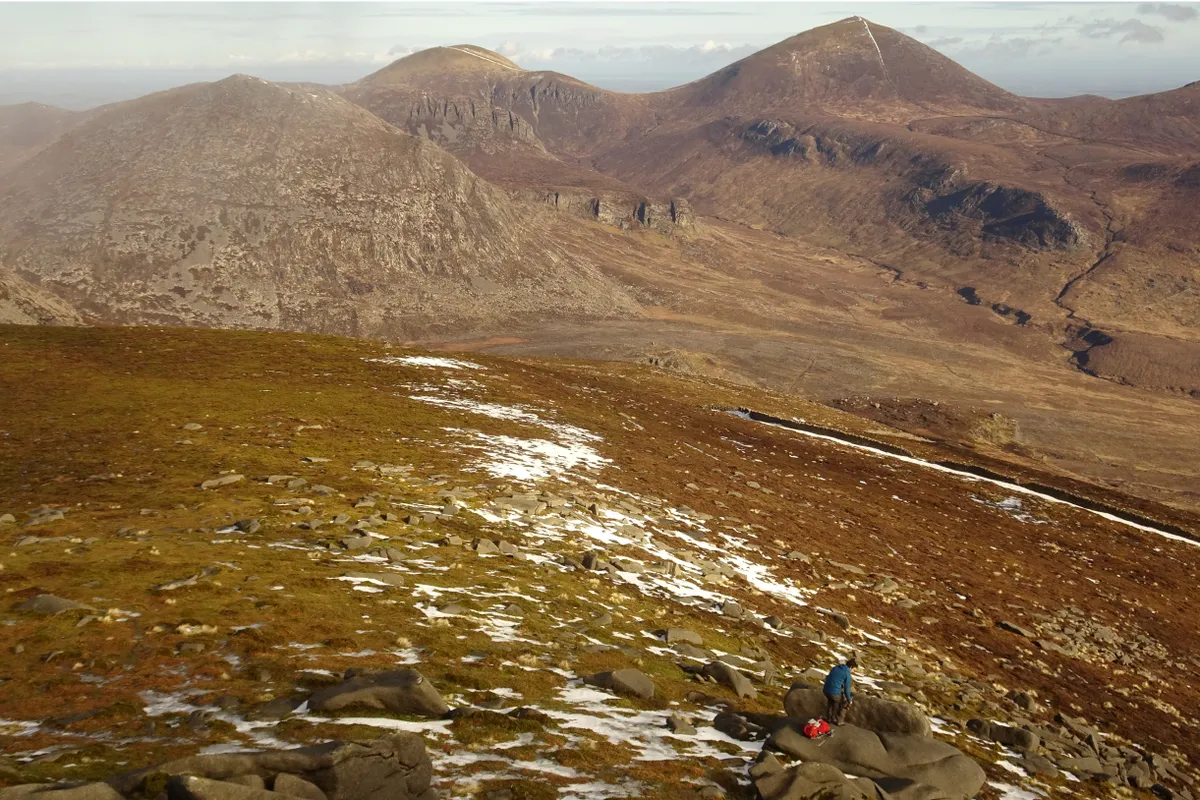
Severe weathering during the last ice age sculpted Slieve Binnian into the most distinctive peak in Northern Ireland's Mourne Mountains.
The scenic splendour of these mountains is well known. After all, this is the landscape that inspired CS Lewis to create Narnia.
The walk that lets you explore all this is just four hours long, but involves 600m of ascent, so demands hillwalking experience and mountain equipment, such as walking poles, as a prerequisite. Route-finding is not overly tricky, but it’s best to wait for a clear day to make the most of the fabulous views. And having completed the route, it’s just a short drive down to the pubs in Annalong, where you can thaw out slowly.
Discover more great walks in the UK
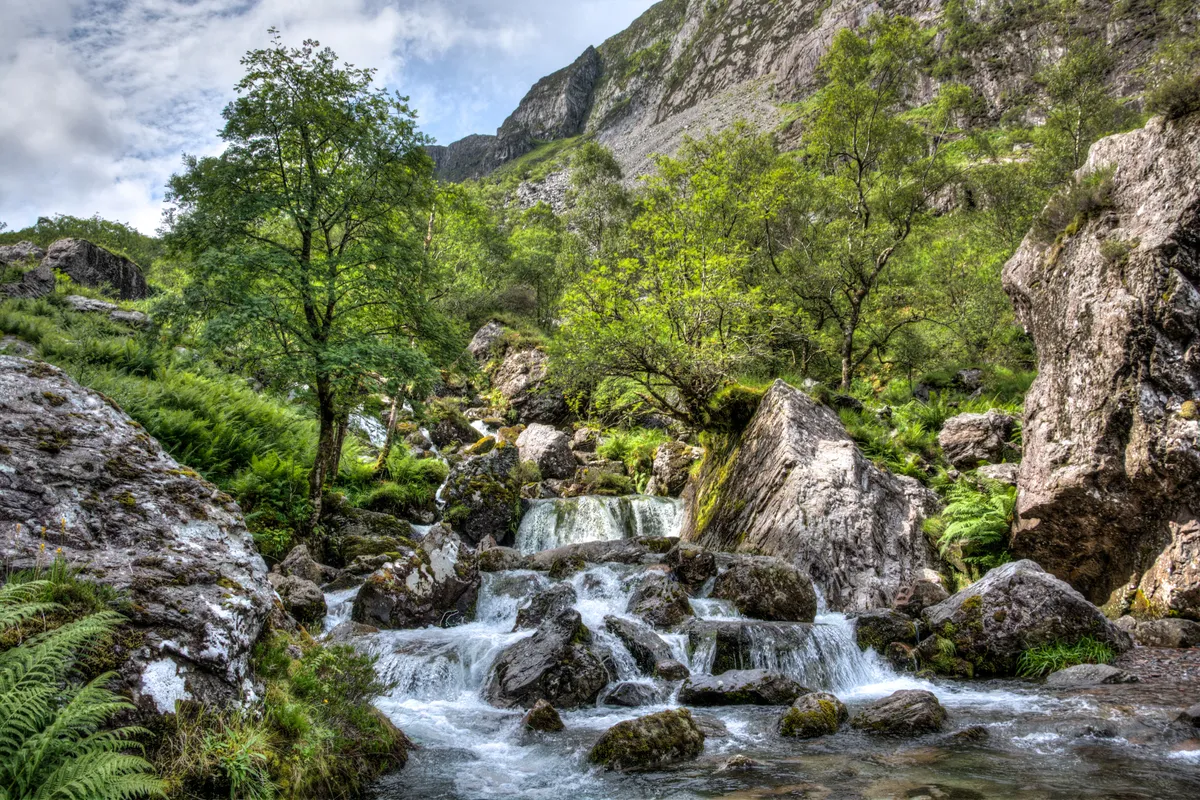
Glenariff Forest Park, County Antrim
1.8 miles/2.9 km | 1 hour | easy-moderate
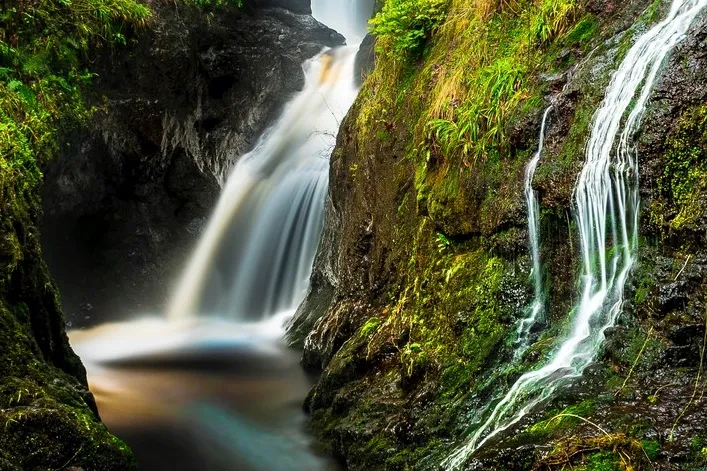
The Rivers Glenariff and Inver have cut right through this spectacular steep-sided gorge – the Queen of the Glens.
These rivers can be lively and dramatic as they tumble over boulders and a series of three impressive waterfalls. But then they become suddenly calm and tranquil, flowing lazily through oak and beech woodland, sunlight streaming through the fresh new leaves.
This humid and moist microclimate is home to rare ferns, mosses and liverworts, as well as spruce, fir, pine and larch. Discover all this and more on a 1.8-mile walk through the forest park.
Slieve Bearnagh, County Down
7 miles/11.3km |4-5 hours | moderate-challenging
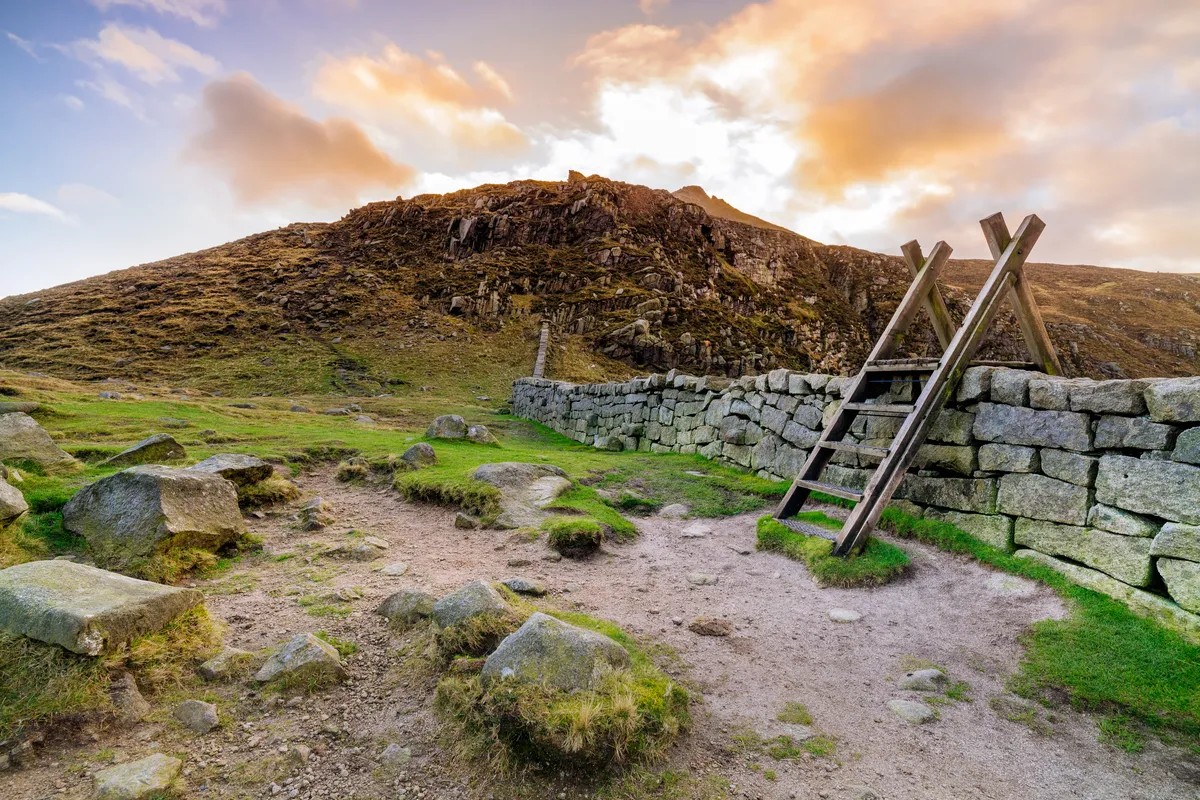
The Mountains of Mourne loom large behind the resort town of Newcastle. The beaches and dunes here are superb for walking, but Newcastle’s jewel in the crown sits inland; a fulfilling circuit of two of the Mournes’ most notable summits, Slieve Bearnagh (739m) and Slieve Meelmore (682m).
Take on this tough upland walk, following a 100-year-old wall over peaks and cols through Northern Ireland’s Mountains of Mourne.
Tollymore Forest Park, County Down
3 miles/4.8km | 2 hours | easy-moderate
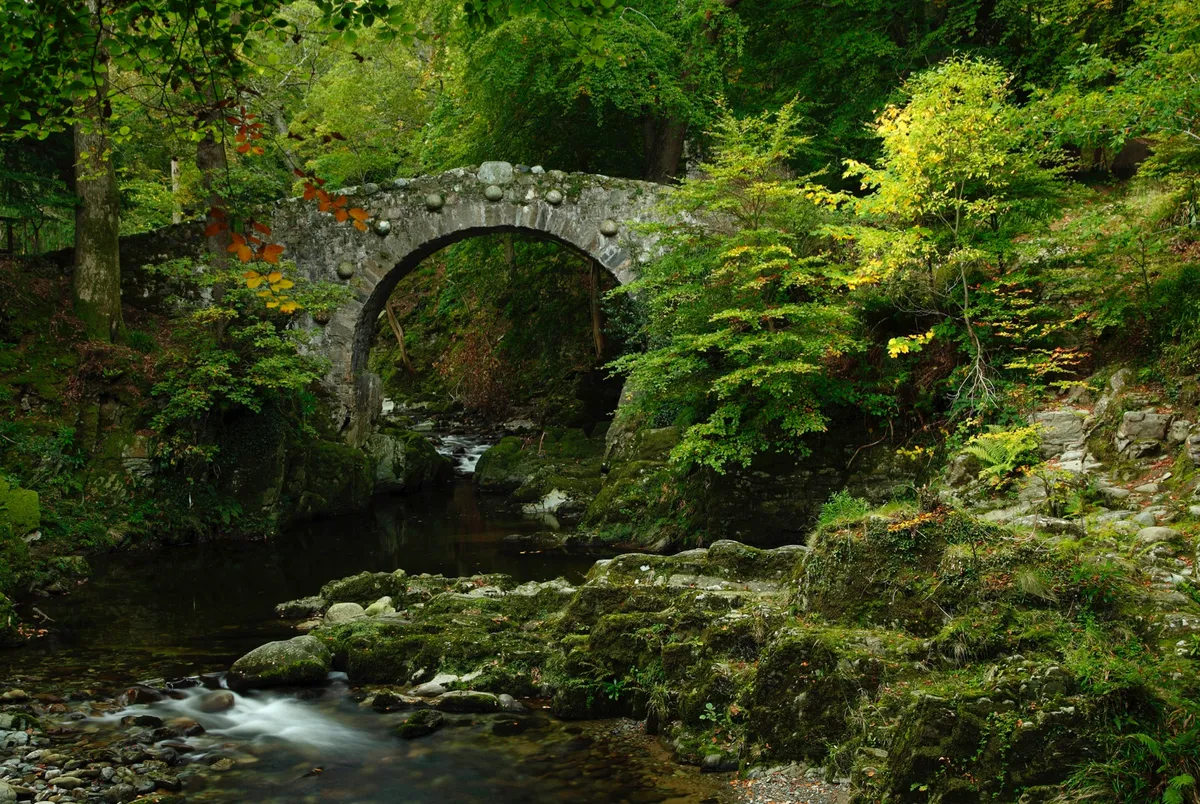
The River Shimna rises on the rutted slopes of the Mourne Mountains, gurgling over granite and heather before dropping into the shadowy depths of Tollymore Forest.
The slopes around the Shimna River are home to a remarkable number of tree species, including oak, beech, ash, birch, larch, Sitka spruce, yew and willow. Field maple, Himalayan cedar, eucalyptus, Douglas fir, Monterey pines, monkey puzzle and giant redwoods can also be found.
Climb through lush woodland along the Shimna River, past the Hermitage and on to Parnell's Bridge on this 3-mile walk.
Murlough National Nature Reserve, County Down
4.7 miles / 7.6 km | 2.5 hours | easy
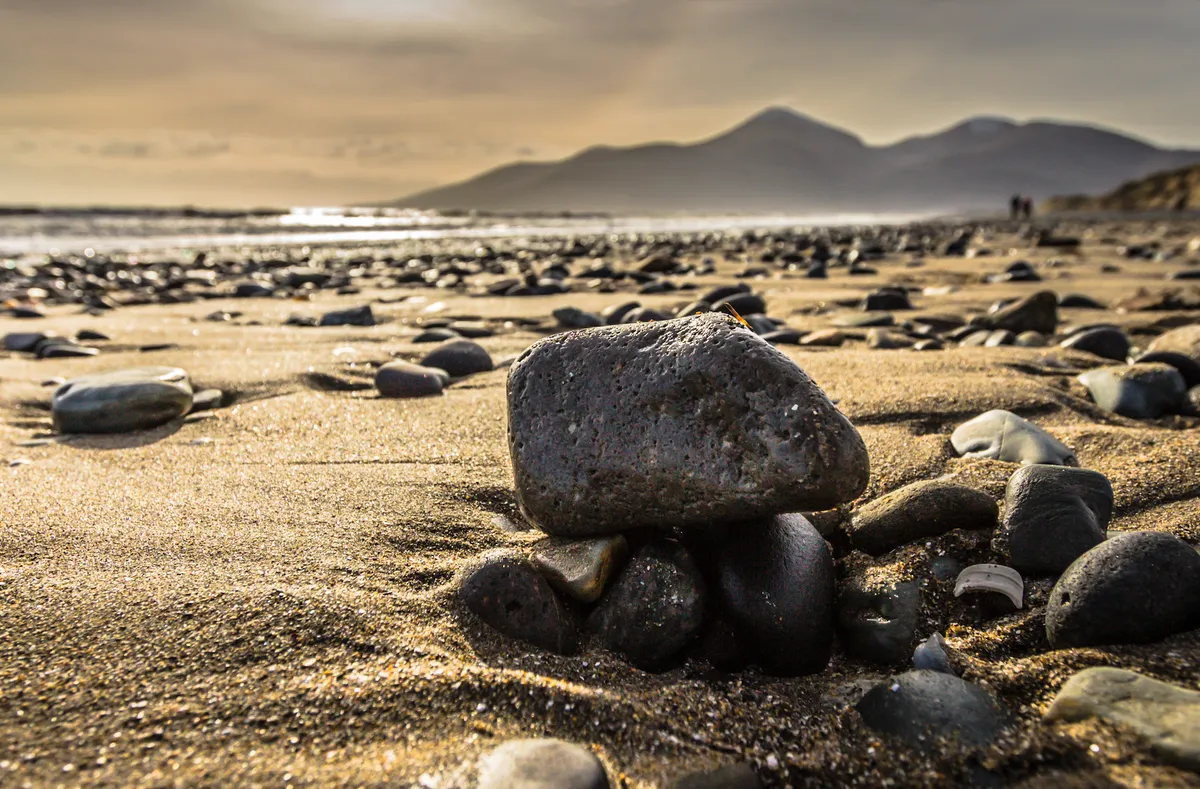
Situated 3.5 miles north-east of the coastal town of Newcastle in County Down, Murlough National Nature Reserve is a wildlife-watchers’ dream.
Its range of habitats play host to a vast diversity of flora and fauna, and the long, sandy beach is the focal point of a fantastic walk, overlooked by the iconic Mourne Mountains.
Cove Cave, County Down
5.6 miles/9km | moderate | 3 hours (return)
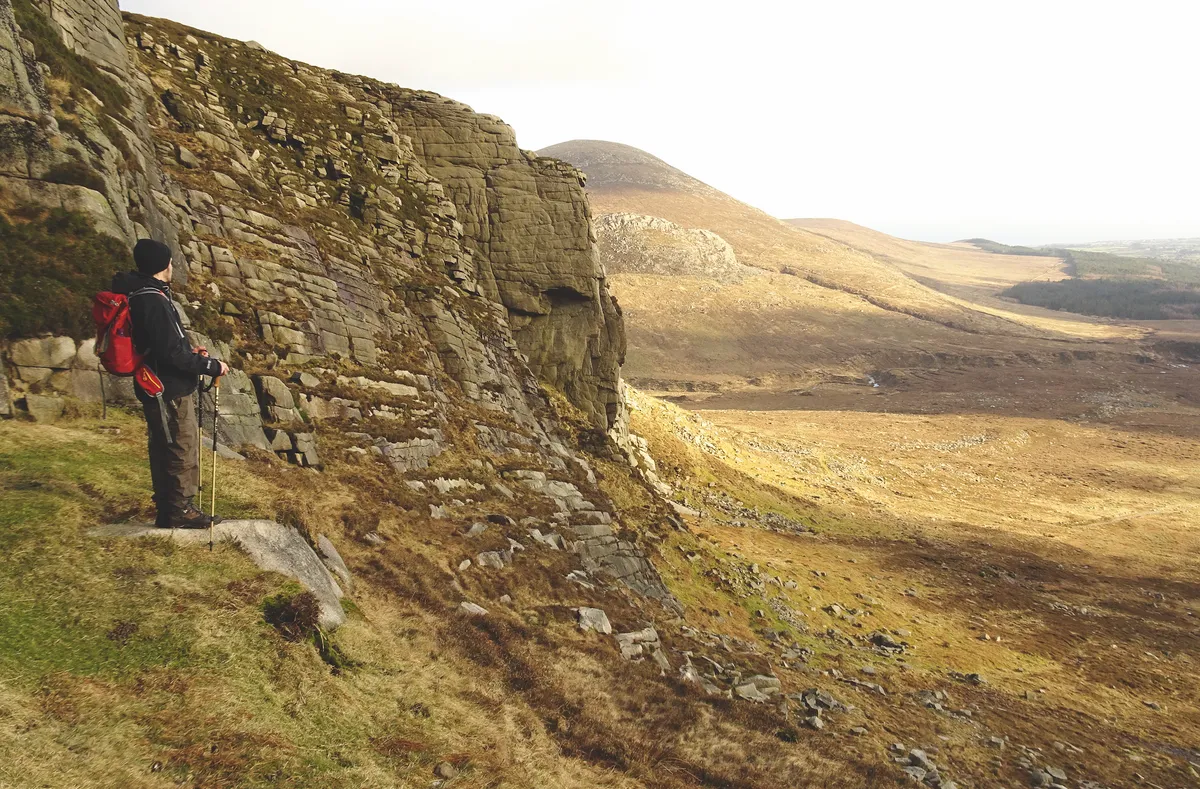
Caves conjure mystical, murky thoughts of bats and boggarts, dragons and trolls. But step inside and your blood remembers. Your ancestors sheltered here, made fire here, chewed bones here. They would have gazed out from within, the dank, pitted walls of their refuge an unpolished frame for the rivers and woods and mountains beyond.
These doors into the earth – or out of it, depending on your aspect – can be found across the UK. Some are well-known, revered for their great atriums, jousting stalactites and archaeological remains; others are more elusive, secreted among quiet hills like dozing shadows wanting none of the fame.
One such hollow sits high within a rocky escarpment on the western slopes of the Annalong River valley in the Mourne Mountains. This six-mile, there-and-back-again walk takes you right to it, an exhilarating quest for friends and families with adventure in their veins.
The Causeway Coast, County Antrim
6 miles/9.7km | 4 hours | moderate
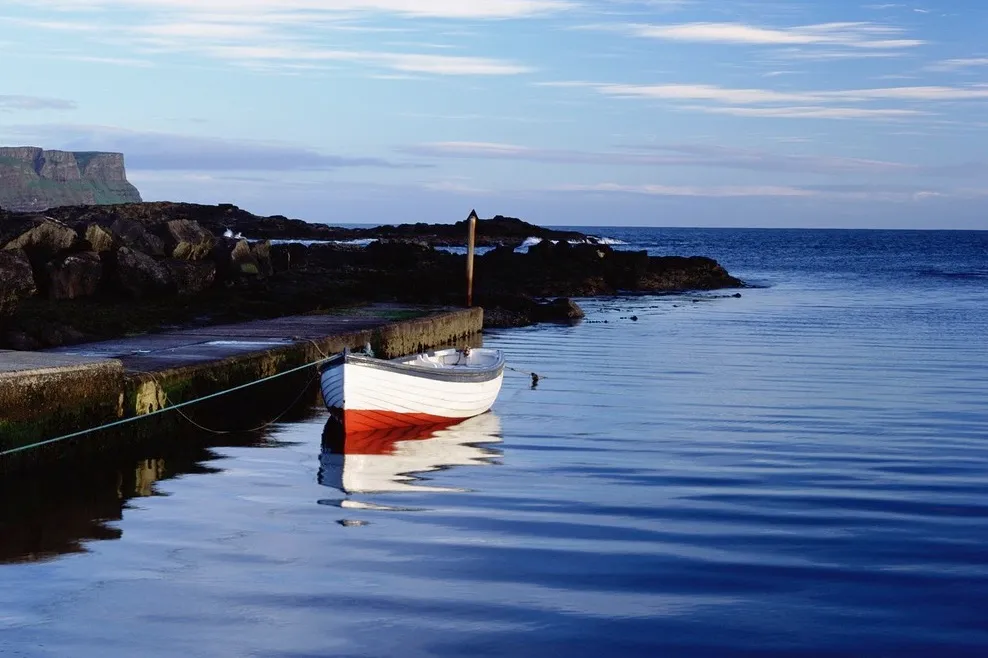
The undeniably impressive Giant’s Causeway is Northern Ireland’s most popular tourist attraction. But step off the beaten track and you’ll be able to marvel at this coast’s geology, myths and breathtaking views in virtual solitude.
This six-mile walk starts east of the Giant’s Causeway at the shoreline hamlet of Portbradden, meaning ‘Port of the Salmon’. Historically a famous fishing spot, it still has a working slipway.
More unusual is the blue and white St Gobbans church. Known as Ireland’s smallest church, it is in fact a local man’s tribute to Gobban, a 7th-century Benedictine monk, whose actual church is a ruin half a mile away at Templastragh.
The Mourne Way, County Down
23 miles/37km | 2 days | challenging
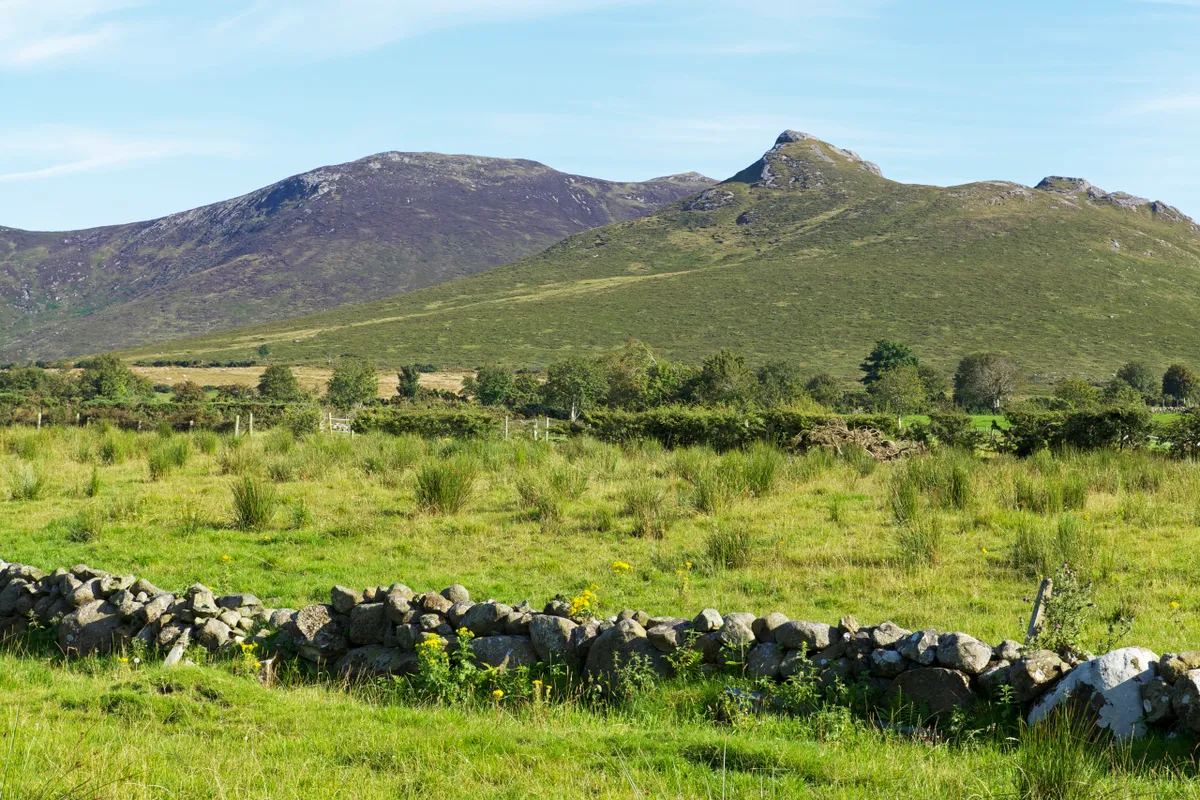
Founded in the 1970s by Wilfred Capper, the Ulster Way walking route circled all six counties of Northern Ireland. At 665 miles long, the original route proved awkward to maintain, but the best parts have now been re-packaged into 15 ‘quality sections’, or Waymarked Ways.
Together these provide signed walking routes across many of the best landscapes in the province. If you’d like a taster, the Mourne Way in County Down takes two days to complete and is a great place to start. Like all the routes, the trail is linear, fully signed and predominantly off-road.
Slemish, County Antrim
1.2 miles/1.9km | 1 hour | moderate
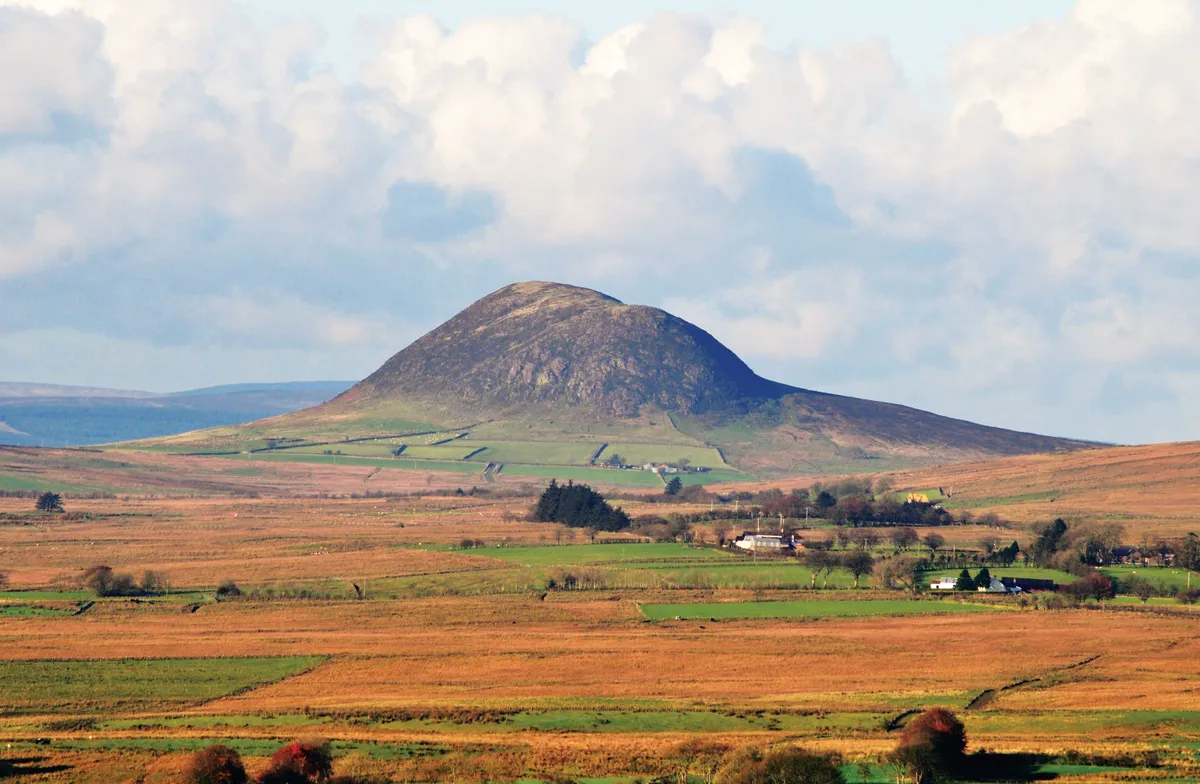
Slemish is a name familiar to most inhabitants of Northern Ireland. Rising abruptly from its flat surrounds, the hill is an unmissable landmark of County Antrim.
Walkers know it as a short, steep climb that provides vast views, but there are so many stories associated with the hill, even those who have never seen it can recall its myths and legends.
Belfast Castle Estate, Belfast
2.4 miles/3.8km |1.5 hours | easy
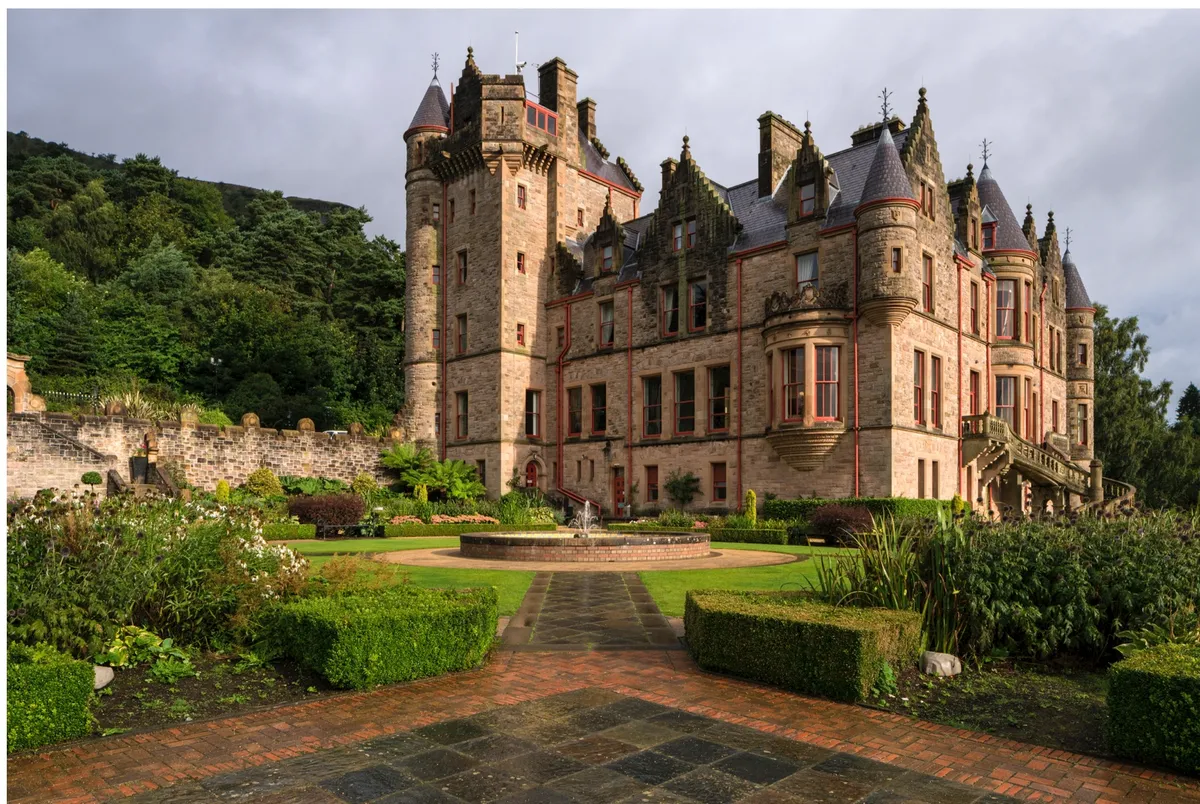
Follow the waymarked Estate Trail through forest and parkland past Belfast Castle.
Belfast castle walking route and map
Carrick-a-Rede, County Antrim
1.4 miles/2.2km | hours | easy
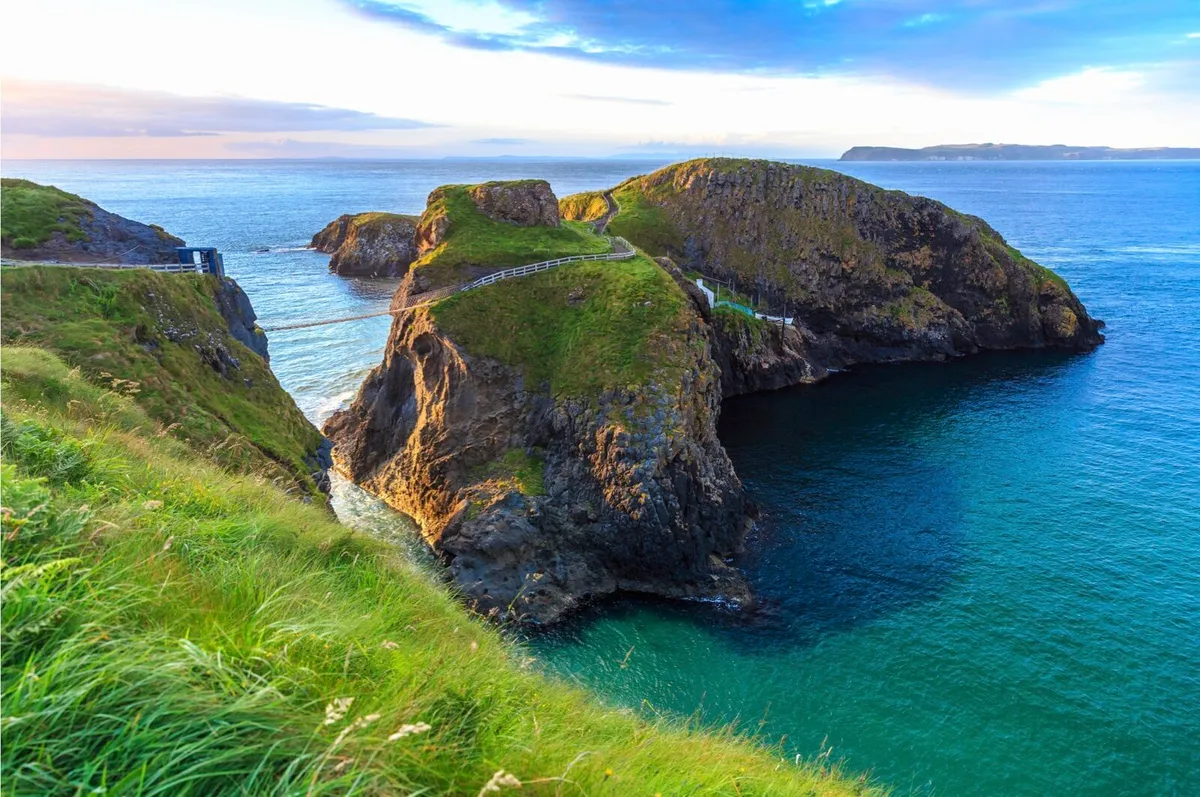
Step across a swinging rope bridge high above the Atlantic and on to a rocky offshore island, once a salmon fishery. The walk down to the beach offers visitors the chance to see a range of unique flora and fauna – don't forget your camera.
Cave Hill Country Park, Belfast
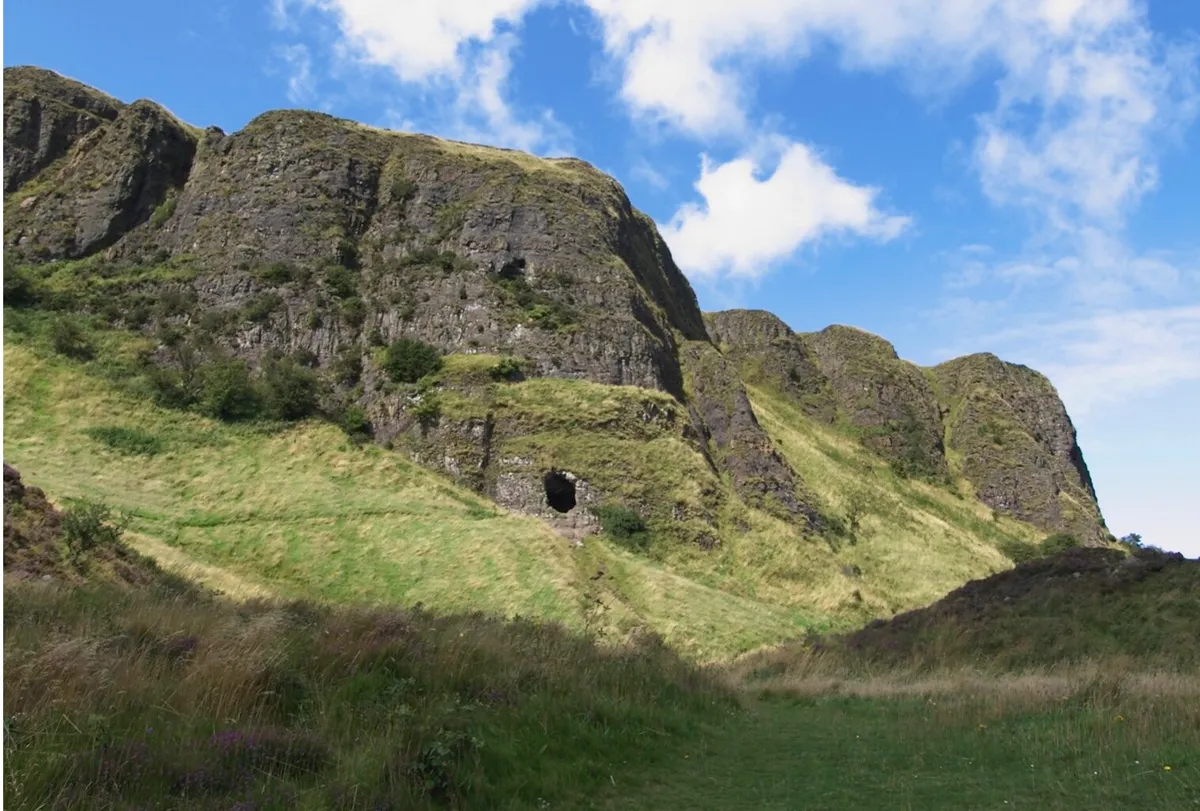
Cape Town has Table Mountain, Edinburgh has Arthur’s Seat, and Belfast has Cave Hill. It’s one of those mandatory excursions and no visitor or local should spend long in the city without making the trip to the top.
Rising to 368m, the eastern slopes of Cave Hill are cut into a series of plunging cliffs. Some 3,000 years ago, the loftiest promontory was home to McArt’s Fort, a prehistoric ceremonial ring fort. Today it’s popularly known as Nelson’s Nose, a reference to its distinctive, face-like profile when viewed from the south.
River Blackwater, County Armagh
2 miles/3.2km | 1 hour | easy

Cross the industrial ironwork of Bond’s Bridge, then head south-west along the River Blackwater, keeping an eye out for kingfishers and other wildlife. This National Trust walk is perfect for dog walkers, families and geocaching.
Mount Stewart Demesne Trails, County Down
0.2 miles–2.4 miles | 20 mins–1 hour | easy
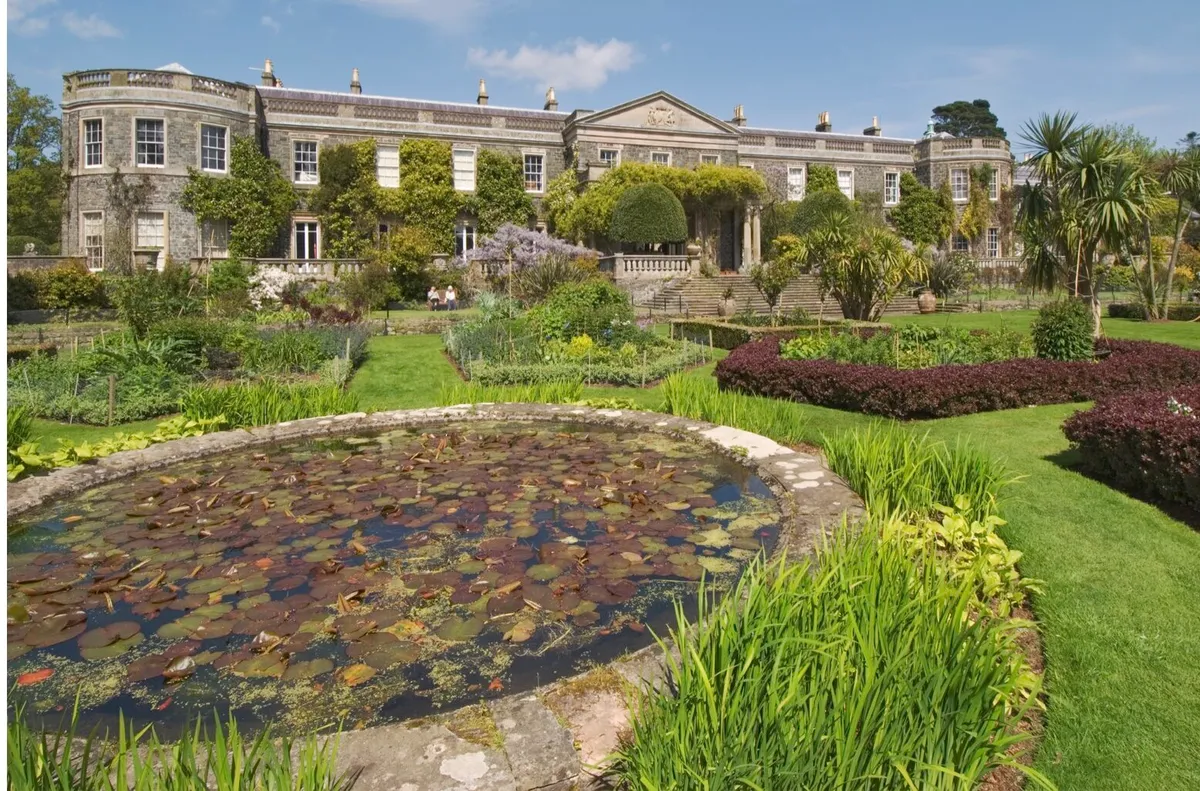
Explore the woodland, farms, orchards and walled garden of Mount Stewart Demesne. The area is popular with red squirrels, buzzards and woodpeckers, and in spring the the countryside blooms with wildflowers.
Fairhead, Country Antrim
1.4–3.4 miles | 1–3 hours | moderate
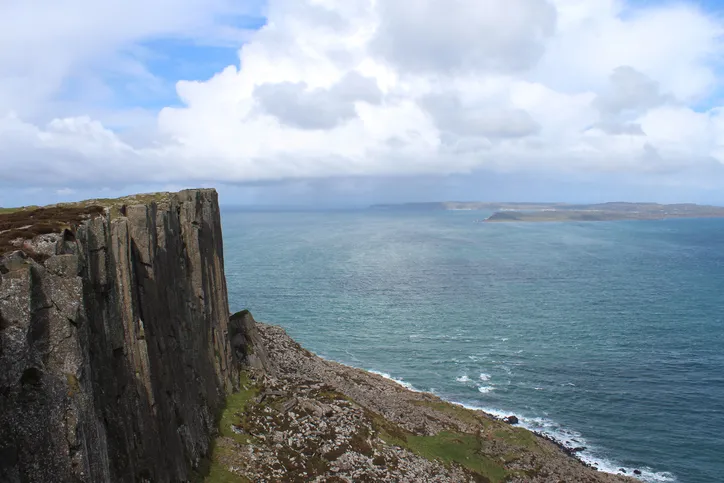
Look out from the clifftops of Fairhead to the town of Ballycastle, Rathlin Island and sandy Murlough Bay. There are a number of walks over the headland, varying from 1.5-3.4 miles.

